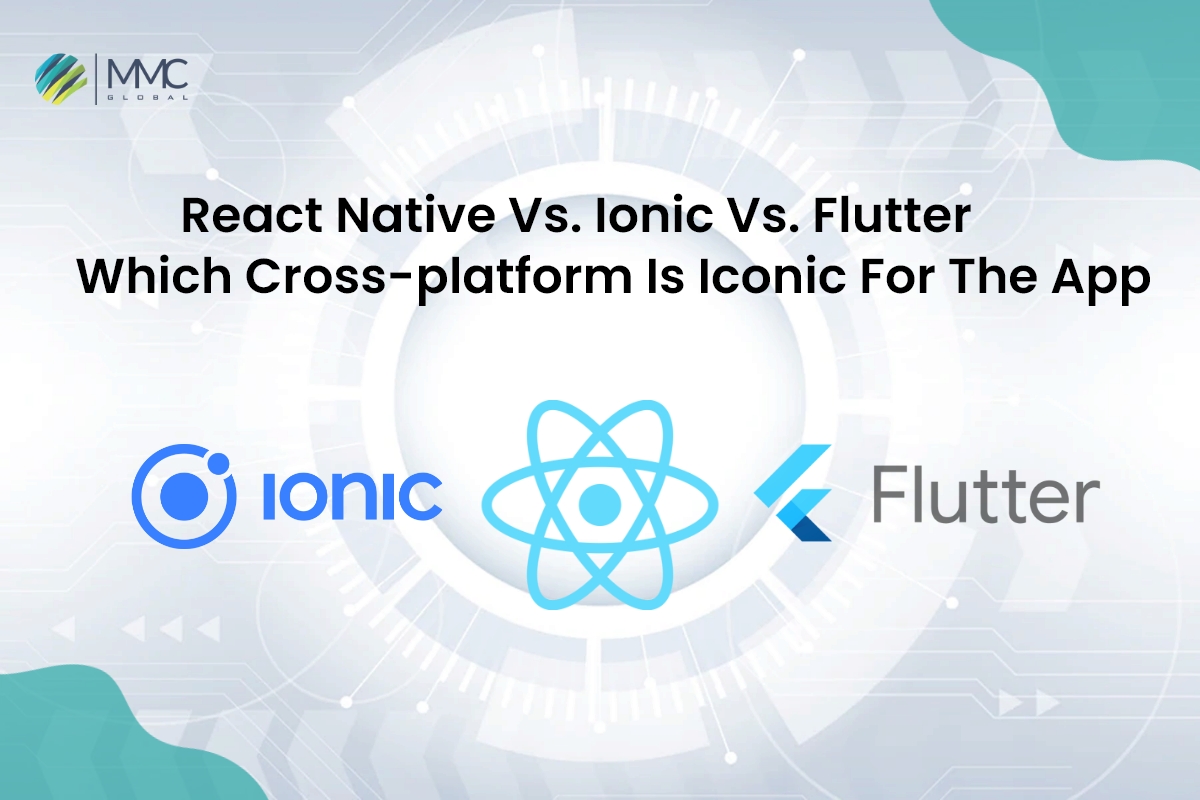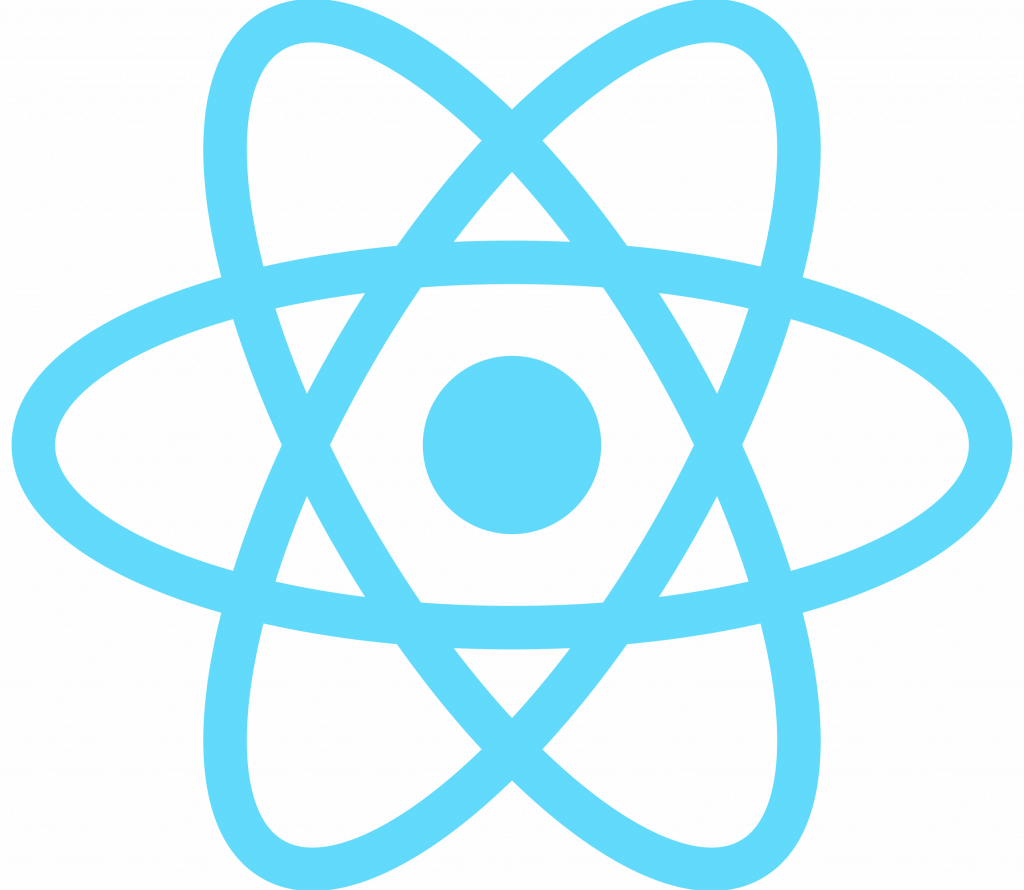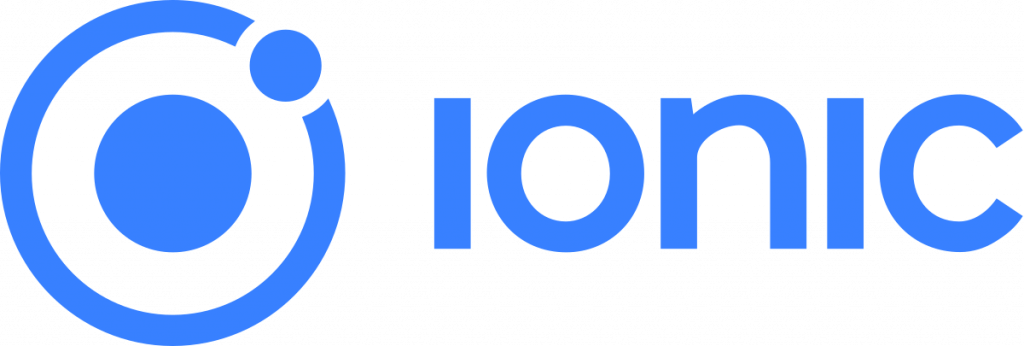React Native Vs. Ionic Vs. Flutter: Which Cross-platform Is Iconic For The App


The mobile app development market size is growing 10x, and almost every industry uses its benefits. Developers have a bundle of ideas to develop apps by using multiple programming languages, frameworks, and libraries on different platforms. Similarly, developers have React Native Vs. Ionic Vs. Flutter frameworks for cross-platform development. These are one of the best frameworks for cross-platform apps. Even it isn’t easy to choose one of them.
This article will differentiate these frameworks so developers save time by thinking repeatedly. Your app’s success is highly dependent on the development process, such as the app design, theme, framework, using library and components, APIs, etc.
You must notice that users download and use high-performing and attractive apps. In fact, if your app does not deliver a good user experience, then don’t expect thousands of users of your app. You may lose your potential users and has a high chance of wasting the money that you invest in it.
The mobile app market has no limits as every second person has a smartphone, using apps for their ease. Maybe they all want at their fingertips for grocery shopping or booking a cab. If you plan to cater to both Android and iOS users on your app, you need to pick a cross-platform framework that can support both devices.
Cross-platform app development is the need of today’s era since it fulfills the end-user requirement it has the momentum to grow businesses’ profit. To build your business app, we will compare the top three mobile app development frameworks for your successful application.
Top Three Cross-Platform Mobile App Development Framework
React, Ionic, and Flutter frameworks are considered the top three frameworks for developing cross-platform applications. With their top features and functionalities, these are the developers’ first choices, and they expected these are the favorites for the Next-gen advanced mobile app.
In this article, you will examine the differences between React Vs. Flutter Vs. Ionic frameworks and a comprehensive comparison to know who wins.
React Vs. Flutter Vs. Ionic Frameworks – A Comprehensive Comparison
First and foremost, The introduction is necessary to familiarize these frameworks.
What is React Native App Development?
React Native app development is an open-source cross-platform that supports Android and iOS development to build a native-like app on any platform. It uses a JavaScript library associated with React.Js. The codebase is reusable, which is the best feature of React Native framework that ultimately reduces time, cost, and resources. Companies like Spotify, Walmart, Facebook, etc., are using React Native app development framework.

What is Flutter App Development?
Google backs flutter app development and supports iOS and Android platforms. When it comes to building a first-rate native experience, the Flutter framework is the one a developer can pick. The flutter framework is new in the market. That’s why its popularity is gaining the attention of developers.
It employs Dart, a Google-developed programming language, as well as many sophisticated capabilities of other programming languages.

What is Ionic Framework?
The ionic framework is used to build cross-platform mobile apps that can run on several platforms using the same code base.
We’re referring to the Ionic framework as a cross-platform app development tool since ‘cross-platform’ and ‘hybrid’ apps are essentially the same save for a few architectural and technological changes. This is because the Ionic framework allows you to create cross-platform hybrid apps for the web, native iOS, and Android platforms.

React Vs. Flutter Vs. Ionic
We’ve got you covered if you’re looking for the finest tool to create a new mobile app or redesign an old one. This article aims to answer all of your concerns about the best cross-platform app development tools and when to use them.
We also want to clarify that deciding what to choose and when is always subjective and dependent on various circumstances. However, this article might assist you in determining the right framework for your purposes.
Programming Language
React Native framework creates a native experience on iOS and Android by combining the React framework with JavaScript. On the other hand, Ionic framework makes the best use of web technologies such as HTML, CSS, and JavaScript and needs the usage of a Cordova plugin to wrap the apps in native containers.
Flutter is unique in that it makes use of the Dart programming language, which Google created. Dart is a contemporary, multi-paradigm, OOP language] for developing web, mobile, and desktop applications.
Performance
One of the decisive elements in selecting the finest framework is this.
Although there are various variables that impact the performance, including the efficiency with which developers write code, we are looking at it from a runtime viewpoint here.
By using native APIs and components, React Native framework allows you to create an application with a native appearance and feel.
Ionic framework is distinct from other frameworks in that it creates hybrid cross-platform apps using web technologies such as HTML, CSS, and JavaScript. To wrap your app with a native cover, you’ll require plugins and third-party packages.
Although React Native and Ionic frameworks provide improved performance, Flutter takes the lead since it does not require native transitions or bridges to connect to the native environment.
Flutter is based on Dart, a relatively new programming language that necessitates understanding Dart to construct an application. It’s getting better, but there are still a lot of things to do.
When it comes to user interface design or the front-end environment of these frameworks, they provide high-quality, native-like experiences that developers like.
Popularity
To put it plainly, React Native framework is more popular than the other two since it is used in production by numerous tech giants such as Facebook, Instagram, Pinterest, Skype, Tesla, Uber, Walmart, Salesforce, Vogue, and others.
On the other hand, the Ionic framework is immensely popular among online and mobile app developers because of its simple learning curve. MarketWatch, Pacifica, Sworkit, Nationwide, and a slew of more companies utilize it.
Flutter is a new app that has gained a lot of traction in a short period of time. Alibaba, Hamilton Musical, Greentea, Google Ads, and more companies utilize it.
These frameworks are well-liked in their respective fields, with plans to improve them in the future.
Community
In comparison to Flutter, React Native and Ionic frameworks have substantial community support. Flutter is newer than Ionic and React Native in the fight for mobile app development technologies, making it less mature. Ionic developed on AngularJS over 6 years ago, which has resulted in very strong community support in terms of swift error resolution and frequent upgrades.
On the other hand, Flutter has carved out a niche for itself and encouraged developers to learn Dart, which in turn enables developers to create high-performing native apps with the aid of the Google community.
All three frameworks appear to have a progressive future. Since the most powerful tech groups in the world endorsed it, including Google and Facebook.
Who Wins?
Ionic framework is well-known for its simple learning curve thanks to web technologies, whereas Flutter requires developers to master Dart in order to create apps. Ionic is also not a good fit for developing high-end graphics apps or games due to wrapper plugins that might cause performance concerns. Flutter is a new project that is slowly gaining traction with the help of Google’s top developers and the community.
However, let us remark that each of these frameworks is superior in its own right. Many aspects must be considered while selecting a framework for cross-platform app development, including money, time, application size, platforms, etc.



